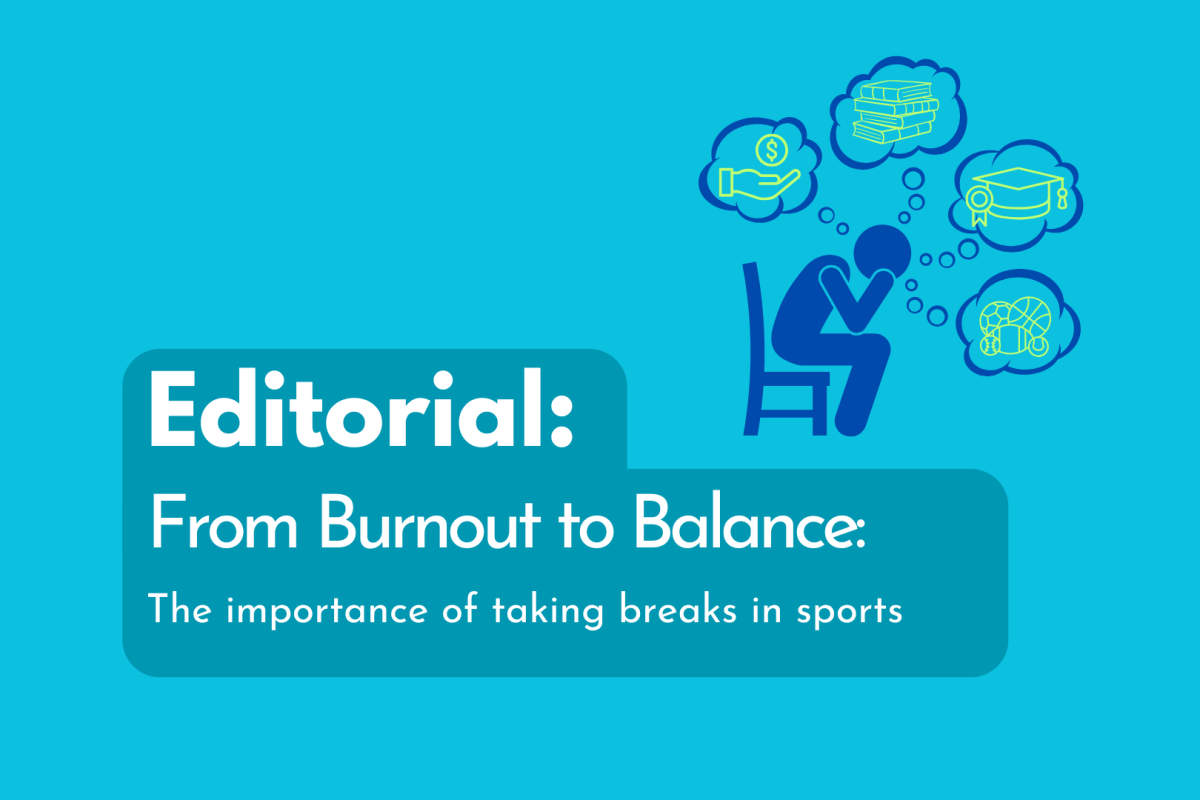From traditions like matching dyed hair to pasta parties, being an athlete seems nothing but fun. However, to fully understand the weight many student athletes carry on a day-to-day basis, we must shift our focus away from the roars of the crowd, behind the trophies and beyond the end-of-season Instagram posts. Beneath the seemingly perfect surface can lie a bigger, often unheard struggle – mental health. It’s a challenge that deserves attention, especially in light of Mental Health Awareness Month, which just concluded in May.
Being a full-time student while dedicating time and energy to a sport comes with a huge time commitment and stress. There’s pressure to make the team, get playing time, be a starter, play in college and get a scholarship. While these goals can be motivating, they can also create a constant fear of failure.
Athletes often tie their self-worth to their performance and how others– coaches, parents and peers– respond to that performance. Many push themselves to train harder and put in extra hours while juggling demanding school work, family obligations and other extracurriculars. Athletes often have a suck it up and “fight through the pain” mindset, resulting in injuries and mental strain that could have been avoided with rest and honest conversations.
Sports don’t have to feel this way, though. They should be fun, enriching and a time to build lasting friendships. There are steps athletes and those who support them should take to contribute to a happier and healthier student life.
Break the stigma. Although many student athletes experience burnout and stress, a stigma still exists around mental health. While adults in our school have made many efforts to encourage openness around mental wellbeing and mindfulness, teens often feel ashamed to speak up, fearing judgment from their peers. We must stop treating mental health as a weakness, but rather as a challenge to overcome, realizing that sharing emotions is the first step towards healing.
Redefine success. Athletic achievements should not just be measured by the stats, the scores or the speed. Instead, success should include effort, progress and the courage to ask for help. Real strength is not pushing your body to its breaking point. It’s about knowing your limits and doing what feels right for your mind and body.
Take necessary breaks. It’s also more than okay to stop if sports are adding stress rather than alleviating it. Sometimes breaks are necessary, even if you’ve played the sport since you were young. Although extracurriculars are important, they should be enjoyable, not just padding for your resume.
Mental health is an often overlooked issue in our generation and needs to be addressed in the court, on the field and beyond. Don’t put too much pressure on yourself to be perfect. Remember: your mental health matters, and there are resources available. Don’t be afraid to reach out.
This unsigned editorial reflects the views of the Harbinger’s Editorial Board.








